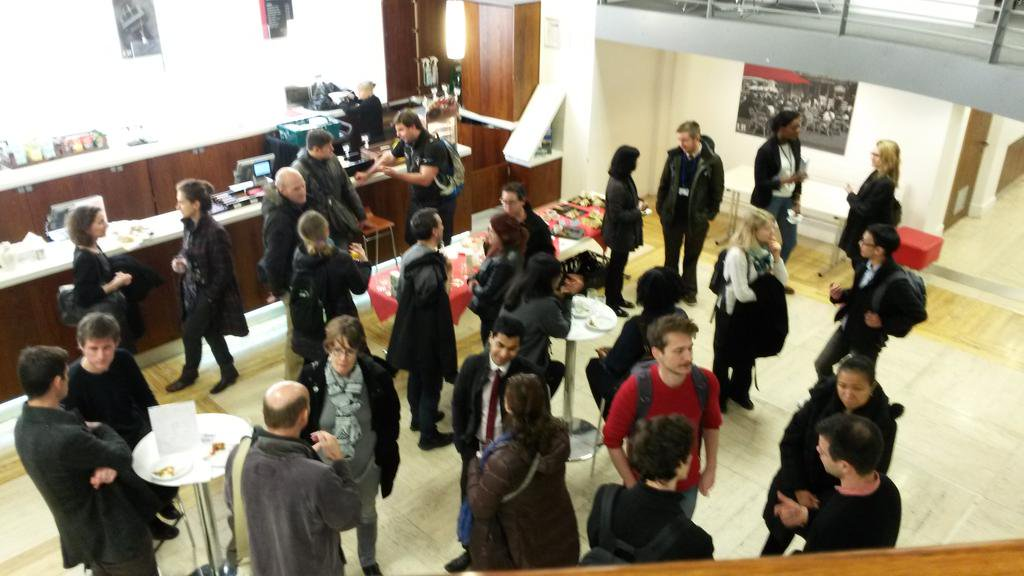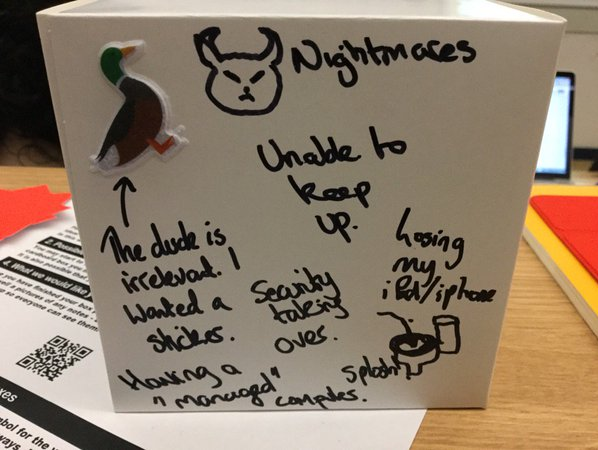The topic of digital literacy has moved out of the realm of theoretical, potential concerns and into research and policy agendas. Librarians have already carved out an established role as information literacy specialists and those of us who work with learning technologies are increasingly called upon to assist academic staff in embedding support for digital literacy into the curriculum or the academic environment.
The concept of digital literacy as one of multiple, intersecting literacies invites us to consider its overlap with quite well-established bodies of knowledge and practice around information literacy, media literacy and critical literacy. Recently we hosted a M25 Learning Technology Group where we discussed different forms of literacy such as assessment literacy, data literacy, copyright literacy as well as ‘open literacy’. The latest work in this area from Jisc has seen a shift in terminology towards digital capabilities, expressed as a six-element framework.

In this meeting our aims were to consider:
- How are learning technologists and academic developers collaborating with students, academics, librarians and/or other professionals to develop digital capabilities?
- And is this work being done as a main focus or has it been a by-product of other activities?
- How does an engagement with the digital enable or enhance the development of students as researchers / producers, or support alternative assessment practices?
- How possible or practical is it to develop digital literacies and capabilities of students outside of the taught / assessed curriculum?
- Whose responsibility is all this anyway?
To watch the recording of this event please click here.
Below is a summary of some of the discussions we had with speakers from different areas and universities around digital literacies:
Digital frameworks at QMUL – David Andrews
David Andrew from QMUL explored the use of digital literacies here at QMUL. David started working with staff in 2003 and throughout the years saw lots of discussions about frameworks. The various frameworks worked primarily with staff and used technology for effective practise. These included work on visual presentations which started to emerge into academic teaching. One of the questions he posed was “Have these frameworks allowed us to move on?”. He found that different groups of people were developing at different paces with some groups lagging behind. This could have been due to different areas having different frameworks being embedded for eg. E-learning, Student Union and Library. These various groups built on information literacy, digital initiative network – research skills and got involved in the graduate attributes, where they had expertise in information literacy. This is now being developed and merged into the QM Model with the focus being on personalised learning for students and also equal opportunities on graduate attributes.
Development of digital dreams – UCL
UCL also explained how they have been involved in the development of digital literacies by involving their students in a playful learning activity. They posed students with the question “What are your digital dreams?”. Students were then asked to narrate their own story using a box after showing them a well known tale as an example. They were allowed to express their ideas anywhere on the box and in return were supplied with a digital prescription. The digital prescription gave students advice on their queries which they found very useful. The exercise was incredibly productive as it showed the institution the areas of concerns and worries as well as the areas which worked and were important for students. This interactive and fun activity was carried out at a stall during lunch and as a reward students were given an iOS or Android voucher. See the UCL blog for more details. We also had a go in our M25 meeting, see one of our attempts below:

Jisc – Update from Jisc including digital capabilities – Evan Dickerson/Jade Cooper
Jisc are currently concentrating on Higher and Further Education by looking at the digital capability framework which focuses on ICT Proficiency – consisting of six elements in a pyramid. At the top is the discovery tool – this is a self diagnostic and reflective tool which promotes reflection on any current skills they already have, which consequently allows them to make plans on future developments and skills which they need to acquire. The pyramid also had other elements such as digital capability online and digital leadership programme as well as building digital capability. Jisc are planning to launch the framework in Summer 2016. A key message which came out from this talk was the lack of communication which prevented Higher Education and Further Education from having a good digital background as they never fully understand the complete picture of the organisation. Click here to read more on the Jisc website.
Students and tutors creating screencasts – Richard Treves, U of Hertfordshire
Richard Treves demonstrated the use of screencasts and how concept diagrams could be built in front of the student layer by layer. This involved a recording of the screen where diagrams and graphs are annotated in the process. He showed how simple technology like Office Mix which is added to PowerPoint would allow you to achieve this without great difficulty and also allowed the academic to add self-assessment questions as part of the package. The advantages of this method were that it did the same job as something high tech like Camtasia but without the timeline which academics find easier to understand and gave users good usability. It also allows students to be more focused as the activity keeps them interacted and doesn’t require a talking head. Learning analytics in Office PowerPoint Mix also allow you to see which students logged in, which slide they viewed and on top of all of this the screencast is reusable. However as any screencast this requires investment of time.
A case study on this was carried out on a student assignment where students authored a presentation using Office Mix. The findings showed that students found this exercise interesting, fun and easy. Some tutors also used this as a flipped learning exercise in a new Msc lecture and found the learning analytics interesting and had no issues with technology. Other uses of this method were seen in marking, feedback and interactive posters.
In conclusion technical barriers for recordings have now decreased and screencasts are useful tools to engage learners and also flip classrooms.
Developing data literacy with Open data – Javiera Atenas, UCL
Open data comes from various places such as international agencies and national government. UCL discussed the development of data literacy with open data and how data should be freely used, re-used and distributed. This provides an invaluable resource for scientific communities and supports and encourages more transparent research practices, development and reproducibility.
It can be used in HE to allow researchers to collaborate in real research projects, with students from other disciplines as well as scenario based activities and local communities. It allows the development of various skills such as – critical, analytical, research, literacy, teamwork and citizenship skills at different levels.


